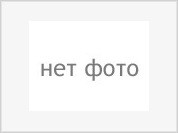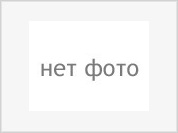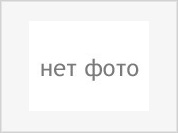Will the Putin-Chirac-Schroeder meeting take place?
I do not believe in coincidences, especially when speaking about visits of senior politicians. This is why I doubt that the simultaneous Moscow visits of French President Jacques Chirac and German Chancellor Gerhard Schroeder are just a "coincidence."
The French leader will come on a two-day working visit on April 1, while the German chancellor will arrive the next day for the opening of the Year of German Culture in Russia. The senior guests may have individual conversations with President Vladimir Putin without holding a tripartite meeting. But then, such a meeting may be the main goal of their Moscow visits.
The rumour mill suggests that this will happen. News agencies have reported that Russian Foreign Minister Sergei Lavrov said on Wednesday, "There will be nothing unusual if the leaders decide to hold a meeting in the form of their choice." I truly hope I am not wrong in assuming that a Russo-French-German meeting is scheduled in Moscow late next week. The point is that the leaders of the three countries are contributing to the improvement of the situation in Europe and the world.
The outlines of Moscow-Paris-Berlin co-operation became visible a year ago, before the Iraqi war, when the leaders of the three countries spoke out against launching hostilities without the sanction of the UN. Life soon confirmed the correctness of their stand. As predicted, no weapons of mass destruction have been found in Iraq. Instead, the US occupation of that country has engendered unrest in the Islamic world and prodded radical Islamic organisations and movements towards terrorist actions. Spain, which had supported the USA then, has felt the effect of terrorism in full measure.
The task of combating terrorism in new conditions will or can become one of the top issues on the agenda in Moscow. What strategy should European countries choose to combat it? Apparently, they can only repel this threat by joining forces.
Another possible issue on the agenda is the dramatically deteriorating situation in Kosovo. The escalation of violence in the Balkans threatens the whole of Europe and could provoke terrorists (above all Islamic radicals) into taking action. In other words, the Kosovo tragedy can boomerang on Paris, Berlin or Moscow, and possibly even in the USA. It is clear, therefore, that counter-terrorism programmes should be elaborated jointly, with US involvement.
When Putin, Chirac and Schroeder spoke out against the US military operation in Iraq a year ago, the world media described their interaction as a new axis. The axis has not been formalised, but the leaders of France and Germany argue that Europe's numerous problems cannot be solved without Russia, which is a full-fledged member of the European process. Smaller Europe, i.e. Europe without Russia, cannot become the world's second largest centre of power.
The meeting between the three leaders would be useful now that Vladimir Putin has been elected for a second term. They could discuss some questions that Europe and Russia have for each other.
Paris and Berlin surely noticed that the Russian stock market surged as soon as the results of the presidential elections were made public. On March 19, the RTS index for the first time soared above 700 points.
Many foreign investors, including French and German ones whose interests Jacques Chirac and Gerhard Schroeder represent, "voted" for Putin by planning to spend more money in Russia. Finance Minister Alexei Kudrin has said that a major inflow of capital - $3-4 bln - into Russia is expected this year, for the first time since the disintegration of the Soviet Union.
In other words, Europe intends to boost its economic interaction with Russia, which is very important because the economy largely determines policy.
Subscribe to Pravda.Ru Telegram channel, Facebook, RSS!





